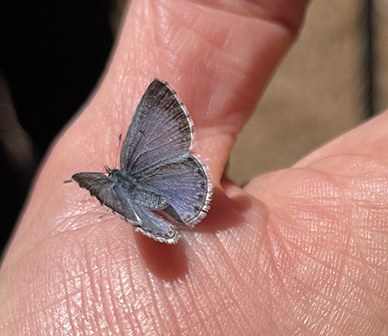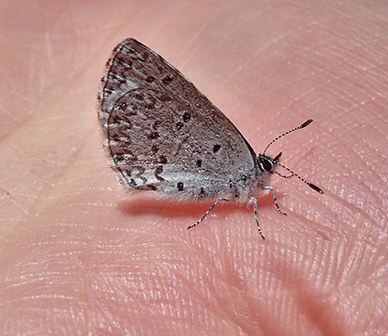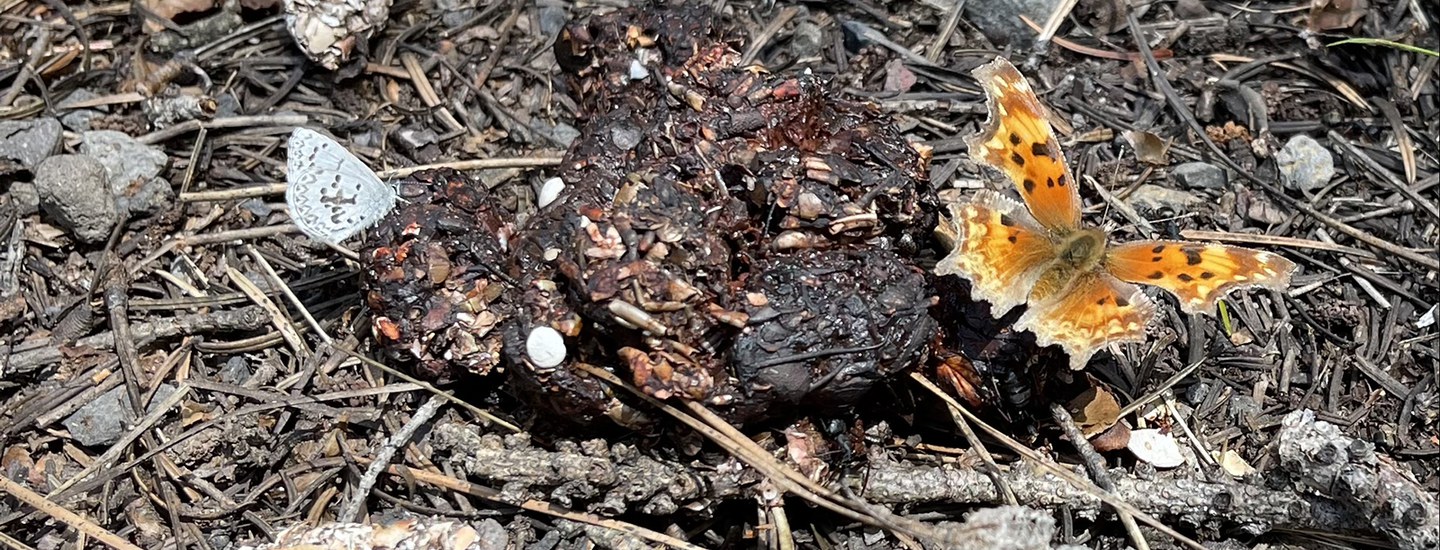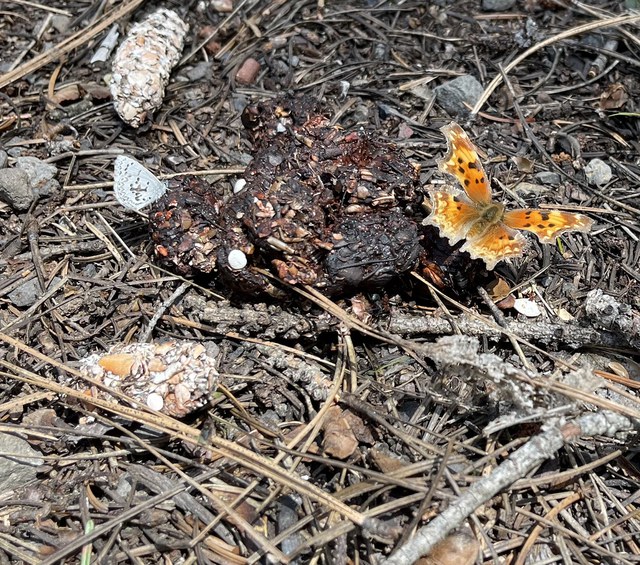It’s not every day that you discover a new species at a Land Trust Preserve, but that was the case in May for stewardship director Amanda Egertson! Amanda was visiting the Metolius Preserve preparing for an upcoming butterfly walk when she found a small blue butterfly that looked like an Asher’s blue (Celastrina asheri). She quickly snapped a photo and headed back to the office to work on identification.
As a result of this uncertainty, Caitlin LaBar and some other Celastrina experts spent the past several years unraveling the mystery. The result is a newly described species they called Asher’s blue (Celastrina asheri), named for an eight year old boy with an incurable neurological disease. The boy’s inherent sunshine and love of the outdoors and the color blue inspired the lepidopterists to name the butterfly after him with the hope of raising awareness of the disease (4H Leukodystrophy) and bringing a little extra sunshine into his world.
Amanda confirmed her identification with butterfly expert Dr. David James, associate professor at Washington State University, and indeed she had spotted the new species! Newly described butterfly species aren’t a common occurrence in the United States, so it’s very exciting news—especially since we have them at the Metolius Preserve!! Amanda has since seen the Asher’s blue at the Metolius Preserve several times.
Amanda is looking forward to finding more Asher’s blues at the Metolius Preserve so she can continue to document the presence of this exciting new species.
Learn more:
- Join the Land Trust on a guided Butterfly Walk.
- About the butterflies of Central Oregon.
- Learn pro-tips for butterfly adventures.


